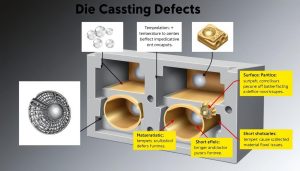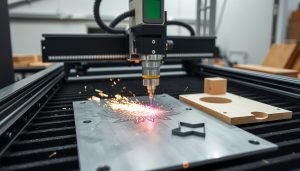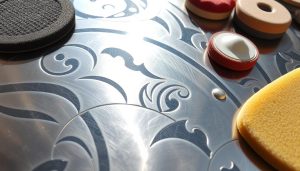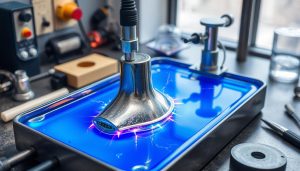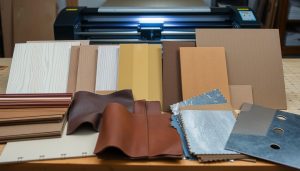In the dynamic landscape of modern healthcare, the role of precision manufacturing technologies has become increasingly vital. One such revolutionary tool is medical CNC (Computer Numerical Control) machining, a game-changing innovation that is transforming the way medical devices, implants, and surgical instruments are produced. This advanced manufacturing process is at the forefront of healthcare innovation, delivering unparalleled accuracy, efficiency, and customization capabilities that are crucial for enhancing patient care and advancing medical research.
CNC machining has emerged as a pivotal technology in the medical industry, enabling the fabrication of intricate, high-precision components that are essential for a wide range of medical applications. From orthopedic implants and prosthetics to specialized surgical instruments and customized rehabilitation devices, this cutting-edge technology is redefining the boundaries of what is possible in the world of healthcare manufacturing.
What is Medical CNC Machining?
Medical CNC machining is a highly precise manufacturing process that plays a crucial role in the healthcare industry. CNC, or Computer Numerical Control, refers to the automated, computer-controlled operation of machine tools, such as lathes, mills, and grinders. In the medical field, this advanced technology is employed to produce a wide range of components, from orthopedic implants to surgical instruments, with unparalleled accuracy and consistency.
Overview of CNC Machining in the Medical Field
CNC machining has become an indispensable tool in the medical manufacturing landscape. By leveraging computer-controlled machines, healthcare companies can manufacture complex, highly customized medical devices and parts with exceptional precision. This technology is particularly valuable in the production of specialized components that require intricate design, tight tolerances, and consistent quality.
Key Benefits of CNC Machining for Medical Applications
- Precise dimensional control and tight tolerances for critical medical components
- Consistent, repeatable production for enhanced product reliability and safety
- Efficient, cost-effective manufacturing of low-volume or customized medical devices
- Reduced risks of human error and contamination compared to manual processes
Common Materials Used in Medical CNC Machining
Medical CNC machining often utilizes a range of biocompatible materials to ensure the safety and performance of medical devices. Some of the most commonly used materials include:
- Titanium – Highly durable and corrosion-resistant, making it ideal for orthopedic implants and surgical instruments.
- Stainless Steel – A versatile choice for a wide variety of medical parts, from surgical tools to components for medical machines.
- Polymers – Advanced polymers, such as PEEK and UHMWPE, are often used for components that require biocompatibility and low friction.
By leveraging the precision and control of CNC machining, healthcare manufacturers can produce high-quality medical parts from these specialized materials, ensuring the safety and effectiveness of their products.
CNC Machining in the Medical Device Industry
The medical device industry is one of the most crucial sectors where precision and quality are paramount. From orthopedic implants and prosthetics to surgical instruments and components for medical machines, CNC machining plays a vital role in ensuring the production of high-performance, long-lasting medical devices.
Orthopedic Implants and Prosthetics
CNC machining is instrumental in the fabrication of intricate orthopedic implants, such as hip, knee, and shoulder replacements. These devices require meticulous design and manufacturing to ensure a perfect fit and seamless integration with the patient’s anatomy. By leveraging the capabilities of CNC machining, manufacturers can create customized implants with exceptional accuracy, improving patient comfort and reducing recovery times.
Surgical Instruments: Scalpel, Forceps, and Clamps
Surgical instruments like scalpels, forceps, and clamps are essential tools for medical professionals, and CNC machining plays a crucial role in their production. These instruments demand exceptional precision, durability, and a keen attention to detail to ensure they perform reliably and safely during delicate medical procedures. CNC machining allows manufacturers to produce these instruments with unparalleled accuracy and consistency.
Components for Medical Machines: Pacemakers and More
CNC machining is also integral to the production of components for advanced medical devices, such as pacemakers, defibrillators, and other life-saving equipment. These components require the utmost precision to function reliably and ensure patient safety. By leveraging the capabilities of CNC machining, manufacturers can create these critical components with the necessary accuracy and reliability.
| Medical Device | CNC Machining Application | Key Benefits |
|---|---|---|
| Orthopedic Implants | Customized fabrication of hip, knee, and shoulder replacements | Improved fit, reduced recovery time, and enhanced patient comfort |
| Surgical Instruments | Production of scalpels, forceps, and clamps | Exceptional precision, durability, and reliability for medical procedures |
| Medical Machines | Fabrication of components for pacemakers, defibrillators, and other life-saving equipment | Unparalleled accuracy and reliability for critical medical devices |
The versatility and precision of CNC machining make it an invaluable asset in the medical device industry, enabling manufacturers to create a wide range of innovative and life-saving products.

CNC Machining for Customization in Healthcare
In the dynamic world of modern healthcare, the ability to customize medical devices and implants has become increasingly vital. CNC (Computer Numerical Control) machining has emerged as a game-changer in this arena, enabling the production of customized medical devices, patient-specific implants, and high-precision medical parts with unparalleled accuracy and efficiency.
Customization of Rehabilitation Devices
CNC machining allows healthcare providers to create personalized rehabilitation devices tailored to the unique needs of each patient. From custom-fitted prosthetic limbs to specialized braces and orthotic devices, this precision technology ensures a perfect fit and optimal functionality, improving patient comfort and accelerating the rehabilitation process.
Production of Patient-Specific Implants
One of the most remarkable applications of CNC machining in healthcare is the production of patient-specific implants. By leveraging advanced imaging technologies and precision machining, healthcare professionals can now design and manufacture implants that precisely match the unique anatomy of the patient, leading to better surgical outcomes and faster recovery times.
Creating High-Precision Medical Parts for Low-Volume Production
CNC machining also excels at producing high-precision medical parts for low-volume production runs. This flexibility allows healthcare organizations to quickly respond to evolving needs and maintain a diverse inventory of specialized components, such as those used in pacemakers, surgical instruments, and other medical devices.
The combination of customization, precision, and flexibility offered by CNC machining has revolutionized the healthcare industry, enabling the development of innovative medical solutions that truly cater to the individual needs of patients.

“CNC machining has become an indispensable tool in the pursuit of personalized healthcare, empowering medical professionals to deliver tailored solutions that improve patient outcomes and transform lives.”
Challenges in Medical CNC Machining
Precision manufacturing for the medical industry presents unique challenges that require specialized expertise. As medical device developers strive to create cutting-edge treatments and technologies, the intricacies of medical manufacturing challenges, cleanroom machining, and strict FDA regulations must be carefully navigated.
Material Selection and Compatibility
Selecting the appropriate materials for medical devices is paramount. These components must be biocompatible, able to withstand sterilization processes, and maintain their integrity under demanding conditions. Navigating the complex landscape of medical-grade materials is essential to ensuring patient safety and product performance.
Cleanroom Requirements and Contamination Control
- Maintaining a sterile, controlled manufacturing environment is critical in medical CNC machining.
- Strict protocols and specialized equipment are necessary to prevent any contamination that could compromise the integrity of medical devices.
- Rigorous cleaning procedures, particle monitoring, and stringent personnel training are essential elements of an effective cleanroom operation.
Regulatory Compliance in Medical Manufacturing
The medical device industry is subject to extensive regulations to ensure patient safety and product efficacy. Adhering to FDA guidelines and other industry standards is a crucial aspect of medical CNC machining. Manufacturers must navigate a complex web of requirements, from material selection to quality control, to bring their innovations to market.
| Key Regulatory Agencies | Primary Responsibilities |
|---|---|
| U.S. Food and Drug Administration (FDA) | Oversight of medical device approval, manufacturing, and post-market surveillance |
| International Organization for Standardization (ISO) | Development of international standards for medical devices and quality management systems |
| Association for the Advancement of Medical Instrumentation (AAMI) | Development of voluntary consensus standards for the medical device industry |
By navigating these complex challenges, medical CNC machining providers can deliver the precision and reliability required to support the healthcare industry’s most innovative solutions. Partnering with experienced manufacturers is crucial to ensuring the successful production of life-saving medical devices.
Future Trends in Medical CNC Machining
As the medical industry continues to evolve, the role of CNC machining in healthcare manufacturing is poised for remarkable advancements. From increased automation to the seamless integration of 3D printing, the future of medical CNC machining holds exciting possibilities that will shape the way we approach personalized medicine.
Automation in CNC Machining for Medical Devices
The drive for efficiency and precision in medical device production has led to a growing trend towards automated CNC machining. Advanced robotic systems and intelligent control algorithms are revolutionizing the manufacturing process, reducing human error and increasing throughput. This automation not only enhances the consistency of medical components but also streamlines the supply chain, ultimately delivering high-quality products to healthcare providers.
Advancements in Materials and 3D Printing Integration
The medical industry is constantly seeking innovative materials that can withstand the rigors of medical applications. *medical manufacturing trends* are pushing the boundaries of material science, with the development of biocompatible alloys and engineered polymers. Moreover, the seamless integration of *3D printing integration* with CNC machining is opening new frontiers in the production of personalized medical devices and implants.
The Role of CNC in Personalized Medicine
As the demand for customized healthcare solutions grows, *automated CNC machining* will play a pivotal role in the future of personalized medicine. The precision and flexibility of CNC machining allow for the creation of patient-specific prosthetics, assistive devices, and even custom surgical instruments. This trend towards personalization not only enhances the patient experience but also improves treatment outcomes and overall healthcare delivery.
The future of medical CNC machining is poised to transform the healthcare industry, driving innovations in automation, material science, and personalized care. As these technologies continue to evolve, the medical community can look forward to a new era of precision, efficiency, and targeted solutions that will redefine the way we approach medical manufacturing.
Shixinproto’s Medical CNC Machining Services
At Shixinproto, we understand the critical importance of precision and quality in the medical industry. As a leading provider of medical CNC machining services, we take great pride in our ability to deliver high-precision components that meet the stringent requirements of healthcare applications.
High-Precision Machining for Medical Devices
Our state-of-the-art CNC machining capabilities allow us to fabricate complex medical parts and components with unparalleled accuracy and repeatability. Whether you need orthopedic implants, surgical instruments, or specialized components for medical equipment, our team of skilled machinists and engineers will work closely with you to ensure the perfect fit and function.
Custom CNC Solutions for Medical Projects
At Shixinproto, we don’t just offer off-the-shelf solutions – we create custom CNC machining services tailored to your specific medical project needs. From designing and prototyping to full-scale production, we leverage our expertise in materials, manufacturing processes, and regulatory compliance to deliver innovative, patient-centric solutions that push the boundaries of what’s possible in the medical field.
FAQ
What is medical CNC machining?
What are the key benefits of CNC machining for medical applications?
- Increased precision and consistency in producing medical components.
- Efficient and cost-effective manufacturing of complex, customized parts.
- Ability to work with a wide range of biocompatible materials, such as titanium, stainless steel, and polymers.
- Enhanced quality control and reduced defects in medical device production.
- Faster turnaround times and greater production flexibility.
What are some common materials used in medical CNC machining?
- Titanium Alloys: Widely used for orthopedic implants and surgical instruments due to their strength, corrosion resistance, and biocompatibility.
- Stainless Steel: A popular choice for surgical tools, medical equipment components, and implants due to its durability and ease of sterilization.
- Polymers: Commonly used for medical devices, prosthetics, and implants, such as polyetheretherketone (PEEK) and high-density polyethylene (HDPE).
How is CNC machining used in the medical device industry?
- Orthopedic Implants and Prosthetics: CNC machining is used to manufacture hip, knee, and other joint replacements with high precision.
- Surgical Instruments: CNC-machined scalpels, forceps, clamps, and other surgical tools ensure consistent quality and performance.
- Components for Medical Equipment: CNC machining is used to produce parts for pacemakers, imaging devices, and other medical machines.
How does CNC machining enable customization in healthcare?
- Customization of Rehabilitation Devices: CNC machining allows for the production of personalized prosthetics, orthotics, and other assistive devices.
- Patient-Specific Implants: CNC technology enables the fabrication of custom-fit orthopedic implants based on a patient’s unique anatomy.
- Low-Volume Production: CNC machining excels at creating small batches of complex, high-precision medical components for specialized applications.
What are some of the challenges in medical CNC machining?
- Material Selection and Compatibility: Ensuring the use of biocompatible materials that meet strict regulatory requirements.
- Cleanroom Requirements and Contamination Control: Maintaining a sterile manufacturing environment to prevent any contamination of medical parts.
- Regulatory Compliance: Adhering to rigorous quality standards and regulations set by agencies like the FDA for medical device production.
What are the future trends in medical CNC machining?
- Increased Automation: Advancements in CNC machine automation and robotics to enhance efficiency and productivity.
- Advancements in Materials and 3D Printing Integration: Exploring new biocompatible materials and integrating CNC machining with 3D printing technologies.
- Personalized Medicine: CNC machining’s ability to produce customized medical devices and components supports the growing trend of personalized healthcare.
